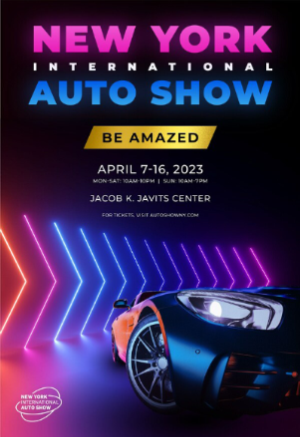 J.D. Power 2020 U.S. TXI Study
J.D. Power 2020 U.S. TXI Study
The level of technology in new vehicles grows every year, adding capability that often goes hand in hand with increased complexity. This new tech can range from advanced safety features to voice-operated infotainment systems, and how well these systems function can play a major role in which car a consumer may choose to purchase. For the fifth year in a row, global research and analytics firm J.D. Power has produced the U.S. Tech Experience Index — or TXI — Study to evaluate the most advanced vehicle technologies.
 New Technology
New Technology
“The race never ends to develop ‘must have’ vehicle technologies,” said Kristin Kolodge, executive director of driver interaction & human machine interface research at J.D. Power. “New technology continues to be a primary factor in the vehicle purchase decision. However, it’s critical for automakers to offer features that owners find intuitive and reliable. The user experience plays a major role in whether an owner will use the technology on a regular basis or abandon it and feel like they wasted their money,” Kolodge noted.
 Innovation Index
Innovation Index
The TXI study creates an Innovation Index, which measures how effectively each automotive brand introduces these new technologies to market, measured on a 1,000-point scale. The index combines the adoption level of new technologies for each brand, along with how well the new tech is executed. The execution measurement examines how much owners like the technologies, as well as how many problems they experience while using them. What follows are some of the key findings in the J.D. Power 2020 U.S. TXI Study.
 Camera Views
Camera Views
Camera technology that provides multiple views around a vehicle is well received among new-car shoppers. Surprisingly, the digital camera rearview mirror — a feature relatively new to the industry —scored highest for both luxury and mass-market vehicles in the 2020 U.S. TXI study. Also ranking high were ground-view cameras that display a view around the entire vehicle, as well as systems that provide a transparent trailer view. Most owners who have these features say they definitely want them again on their next new car.
 Gesture Controls
Gesture Controls
Several luxury car brands have been introducing gesture controls, which allow the driver to control various infotainment and communication features with hand gestures. This technology could still be ahead of its time — it is ranked the lowest in all measured attributes. According to the J.D. Power 2020 U.S. TXI Study, 61 percent of owners use this technology less than half the time they are driving, while 16 percent tried it and no longer use it.
 Automated Driving
Automated Driving
Many new vehicles offer some level of driver assistance that can manage functions such acceleration, braking and steering while drivers remain focused on actual driving. Engineers created these systems to relieve driving stress, and to start preparing drivers for a time when a vehicle might be able to operate completely autonomously. Although many drivers find that using these systems does help lower stress levels, most still don’t trust the systems to operate properly and find them annoying or distracting. J.D. Power researchers note that proper training on these systems could make them more useful if drivers understood how they function, but training typically doesn’t happen.
 Volvo Leads Luxury Brands
Volvo Leads Luxury Brands
With a high level of advanced technologies across its lineup, Volvo ranks highest among premium brands in the J.D. Power 2020 U.S. TXI Study, earning a score of 617. Rounding out the top five are BMW (583), Cadillac (577), Mercedes-Benz (567) and Genesis (559).
 Hyundai Tops Mass-Market Brands
Hyundai Tops Mass-Market Brands
Hyundai bested all other mass-market brands in the J.D. Power 2020 U.S. TXI Study with a score of 556. The study praised the Korean automaker for offering an above-average level of technologies on its vehicles while scoring well for execution of those tech features. Following Hyundai are Subaru (541), Kia (538), Nissan (534) and Ram (520).
 Tesla
Tesla
For the first time, U.S. electric car manufacturer Tesla has been included in the annual TXI study — although not officially. Unlike other auto companies, Tesla doesn’t grant J.D. Power permission to survey its owners in 15 states where it is required, so the automaker doesn’t meet the J.D. Power ranking criteria. However, Tesla’s unofficial index score of 593 tallied from a sample of respondents in the 35 other states would have placed it as the second-highest-ranked luxury brand.
 Advanced Technology Award Recipients
Advanced Technology Award Recipients
In addition to calling out top car brands, the TXI study analyzes 34 technologies and recognizes the new vehicle that ranks highest in each of four categories: Convenience; Emerging Automation; Energy and Sustainability; and Infotainment and Connectivity. Note that no vehicles earned the award in 2020 for Energy and Sustainability. The following vehicles are winners in the remaining categories.
 Convenience Luxury Market — Cadillac CT5
Convenience Luxury Market — Cadillac CT5
Cadillac introduced the all-new CT5 compact sedan for the 2020 model year. As one of the brand’s newest models, it is available with the latest in advanced technology. The Cadillac CT5 earned the Convenience award for its rear-seat reminder. A rear-seat reminder alerts the driver before exiting the vehicle if a rear door had been opened prior to starting the current trip.
 Convenience Mass Market — Subaru Ascent
Convenience Mass Market — Subaru Ascent
The Ascent is Subaru’s largest SUV, offering seating for up to eight occupants. This top award went to the Ascent for its Smart Rear-View Mirror that uses a dedicated camera to maintain visibility even if the rear view is obstructed from inside.
 Emerging Automation Luxury Market — Cadillac Escalade (tie)
Emerging Automation Luxury Market — Cadillac Escalade (tie)
The largest luxury SUV on the market, the Cadillac Escalade is one of the brand’s best-selling vehicles. The J.D. Power 2020 U.S. TXI Study recognized the Escalade’s rear cross-traffic alert as a top automation technology. Rear cross-traffic alert uses radar to warn the driver while backing up in case a vehicle is coming from either direction — especially valuable in such a large vehicle.
 Emerging Automation Luxury Market — Genesis G70 (tie)
Emerging Automation Luxury Market — Genesis G70 (tie)
As Hyundai’s luxury brand, Genesis offers a range of sedans and a new SUV. The sporty G70 sits at the entry point of the Genesis lineup. Like the Escalade, the G70 earned this top award for its rear cross-traffic alert system.
 Emerging Automation Mass Market — Chevrolet Camaro
Emerging Automation Mass Market — Chevrolet Camaro
One of the most recognized models of the last half century, Camaro is available as a coupe or convertible with a range of powerful engine options. The Camaro was also acknowledged in the 2020 study for its rear cross-traffic alert system.
 Infotainment / Connectivity Luxury Market — Cadillac XT5
Infotainment / Connectivity Luxury Market — Cadillac XT5
The best-selling model in the Cadillac lineup, the XT5 luxury crossover gets fresh styling for the 2020 model year. Making it a clean sweep for GM’s luxury brand, the XT5 earned the Infotainment/Connectivity award for its GPS navigation system with live traffic information.
 Infotainment / Connectivity Mass Market — Kia Sportage
Infotainment / Connectivity Mass Market — Kia Sportage
The Sportage has been in the Kia lineup for more than 20 years, and the small crossover has come a long way since its beginnings. With a surprising level of technology for an entry-level vehicle, the Sportage earned its place in the J.D. Power study for the same technology as the Cadillac XT5 — navigation with live traffic.
The post Cadillac, Volvo, Hyundai Lead in 2020 Tech Study appeared first on autoNXT.net.








